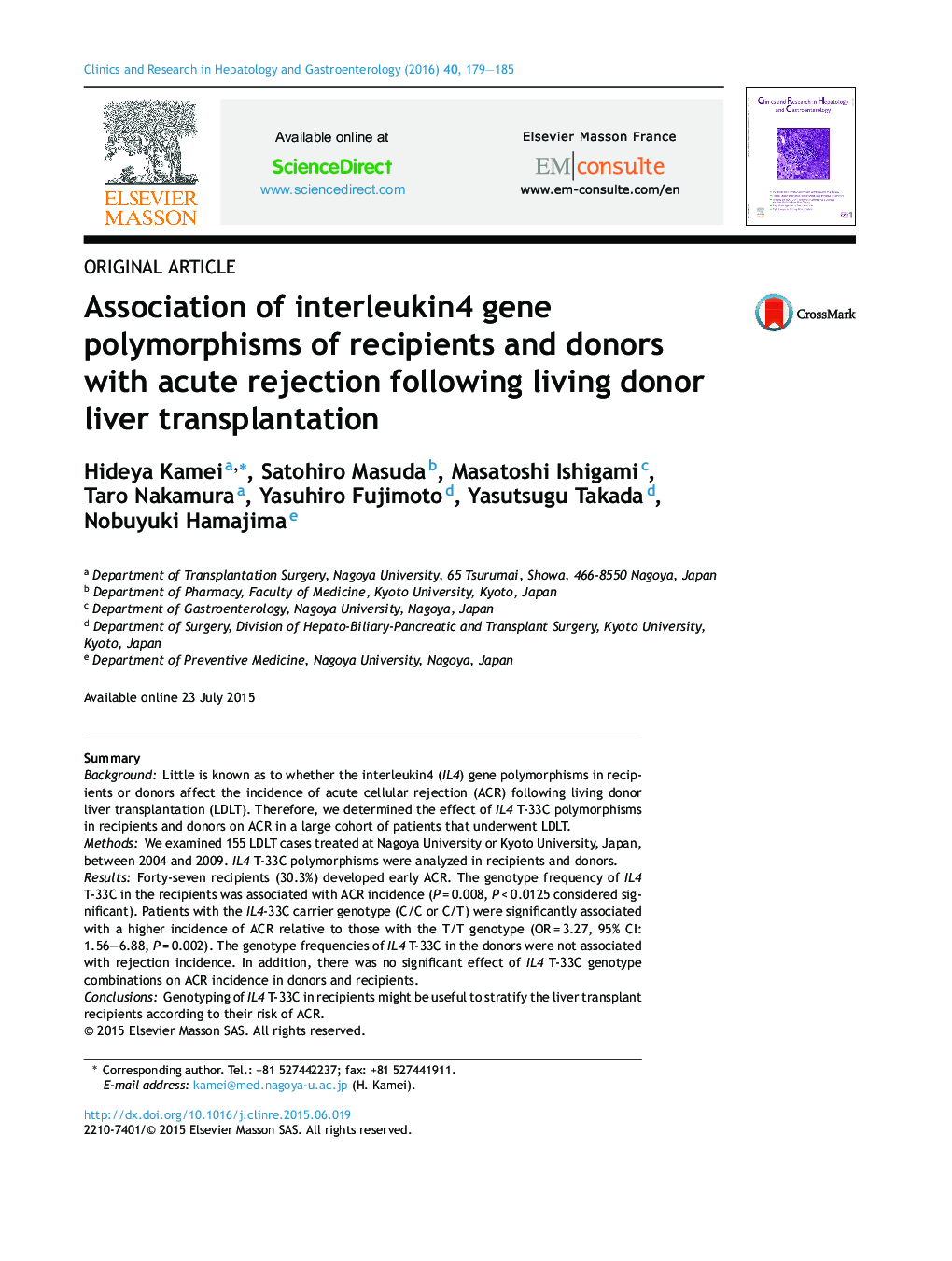| Article ID | Journal | Published Year | Pages | File Type |
|---|---|---|---|---|
| 3286025 | Clinics and Research in Hepatology and Gastroenterology | 2016 | 7 Pages |
SummaryBackgroundLittle is known as to whether the interleukin4 (IL4) gene polymorphisms in recipients or donors affect the incidence of acute cellular rejection (ACR) following living donor liver transplantation (LDLT). Therefore, we determined the effect of IL4 T-33C polymorphisms in recipients and donors on ACR in a large cohort of patients that underwent LDLT.MethodsWe examined 155 LDLT cases treated at Nagoya University or Kyoto University, Japan, between 2004 and 2009. IL4 T-33C polymorphisms were analyzed in recipients and donors.ResultsForty-seven recipients (30.3%) developed early ACR. The genotype frequency of IL4 T-33C in the recipients was associated with ACR incidence (P = 0.008, P < 0.0125 considered significant). Patients with the IL4-33C carrier genotype (C/C or C/T) were significantly associated with a higher incidence of ACR relative to those with the T/T genotype (OR = 3.27, 95% CI: 1.56–6.88, P = 0.002). The genotype frequencies of IL4 T-33C in the donors were not associated with rejection incidence. In addition, there was no significant effect of IL4 T-33C genotype combinations on ACR incidence in donors and recipients.ConclusionsGenotyping of IL4 T-33C in recipients might be useful to stratify the liver transplant recipients according to their risk of ACR.
